What will Prime Minister Truss mean for Scotland?
- Published
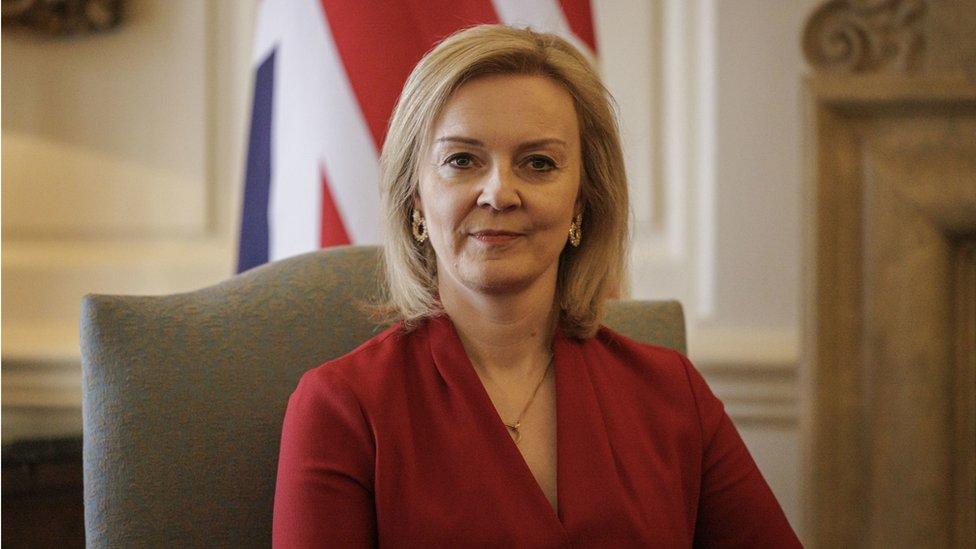
Ms Truss showed signs during her leadership campaign that she could take a harder line against calls for indyref2
Newly appointed prime ministers, in recent years, have made a beeline for Bute House in Edinburgh - the official residence of Scotland's first minister.
Theresa May travelled there for talks with Nicola Sturgeon on her first full day in office in 2016. Boris Johnson made a similar trip during his first week in 2019.
I would be surprised if Liz Truss was in quite the same rush to arrange a face-to-face meeting in Scotland.
It is not just that she takes over in the midst of a worsening cost of living crisis that demands a great deal of attention.
It is not even that there is a huge pile of other problems for her to sort from post-Brexit trading arrangements and restoring power-sharing in Northern Ireland, to the war in Ukraine.
A cursory glance at Ms Truss's comments on Scotland during the leadership contest suggest she is not overly keen to engage with Nicola Sturgeon as the first minister steps up her renewed campaign for independence.
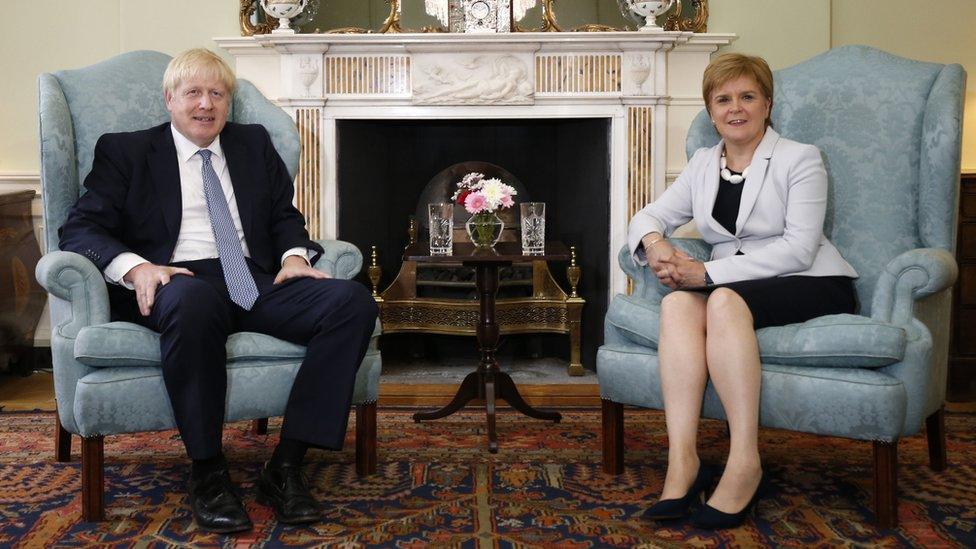
Boris Johnson visited Nicola Sturgeon in her Bute House residence four days after becoming prime minister in 2019
Ms Truss was applauded by Conservative members in Exeter when she described Ms Sturgeon as an "attention seeker" who was best ignored.
She has since clarified that it is the demand for another independence referendum that she intends to ignore.
She has also called for "constructive relations" with the devolved government, but that does not necessarily include an early summit with the first minister.
At this stage, the talk is of a visit to Scotland that bypasses Bute House. To show commitment to Scotland and its place in the union without giving a high-profile photocall to the first minister.
It may be that Nicola Sturgeon, with other devolved leaders, is invited to Downing Street to discuss shared economic challenges.
On independence, if Ms Truss governs as she campaigned, it seems she could take a harder line against another referendum than her predecessor.
Boris Johnson used "now is not the time" type language to express his opposition. When asked about her approach to indyref2, Ms Truss simply said "no, no, no".
At the Perth leadership hustings she went further, making clear that she would "never, ever let our family (of nations) be split up".
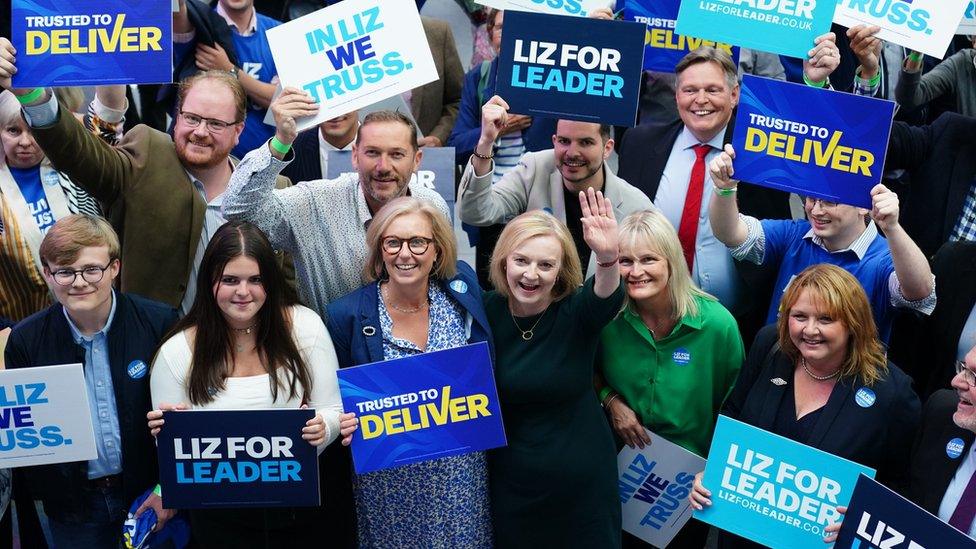
Ms Truss won more support from Scottish Conservatives MSPs than her leadership rival Rishi Sunak
That rhetoric could be put to an early test when the UK Supreme Court determines whether or not Holyrood has sufficient power to hold a consultative ballot without Westminster approval.
The weight of legal opinion suggests the judges are most likely to rule that it does not.
But if the case goes the other way, Ms Truss would have to decide whether to let a referendum go ahead or take active steps to block it.
At the weekend, the Sunday Times reported that the Truss administration might consider legislating to make it harder for Scotland to leave the UK, external, even if the court rules in its favour.
The suggestion is that any future referendum would require a majority of all those entitled to vote in Scotland to back independence - a higher threshold than a majority of those who actually take part.
My understanding is that legislation - of any sort - would only be considered if the Supreme Court rules in the Scottish government's favour.
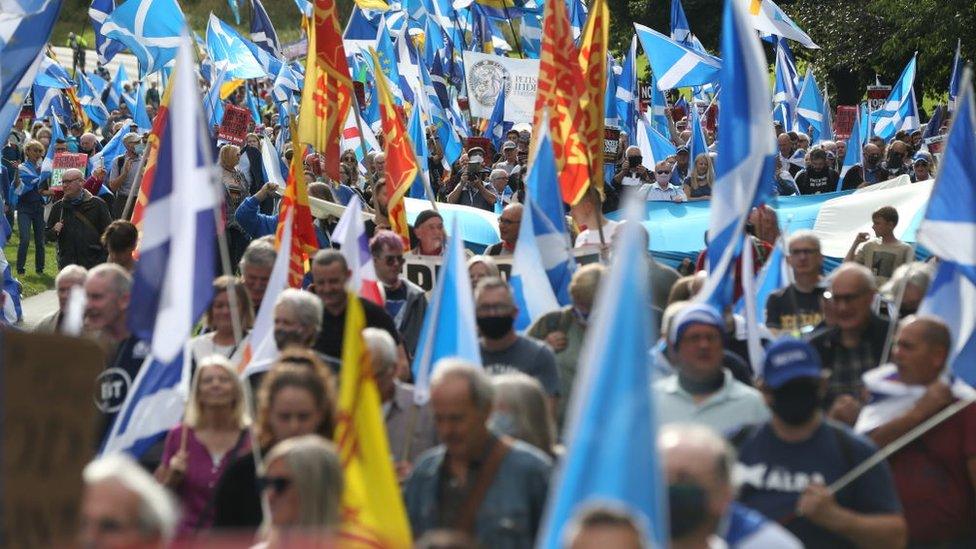
There have been reports that Ms Truss is considering passing laws to make it harder for Scotland to leave the UK
It goes without saying that independence supporters regard this tough talk as anti-democratic and disrespectful. Nicola Sturgeon said it was "desperate".
There are certainly dangers for unionists in adopting a more "muscular" approach - it could alienate moderate opinion in Scotland and boost support for independence.
The advice the new prime minister receives will be crucial, with Boris Johnson's special adviser on Scotland, Lord Macinnes - a hugely experienced figure - expected to leave Number Ten.
While the constitution will - as ever - be the most obvious source of tension between the UK and Scottish governments, it will not be the only one as Ms Truss takes office.
Her plans to "maximise" North Sea oil and gas production are at odds with Nicola Sturgeon's calls for strict new climate compatibility tests on all new extraction.
Her plans to reduce taxes have been described by Nicola Sturgeon as pandering to the "niche priorities" of some Conservatives rather than wider interests across the UK.
If tax cuts eventually extend to income tax, which is largely devolved, the gap between what's paid north of the border and elsewhere in the UK could widen.
A new prime minister presents an opportunity for the Scottish Conservatives to reset their relationship with the UK leader which broke down under Boris Johnson over Partygate.
While Ms Truss started the leadership contest without a single high profile backer in the Scottish Tories, she ended the campaign with more Holyrood supporters than Rishi Sunak.
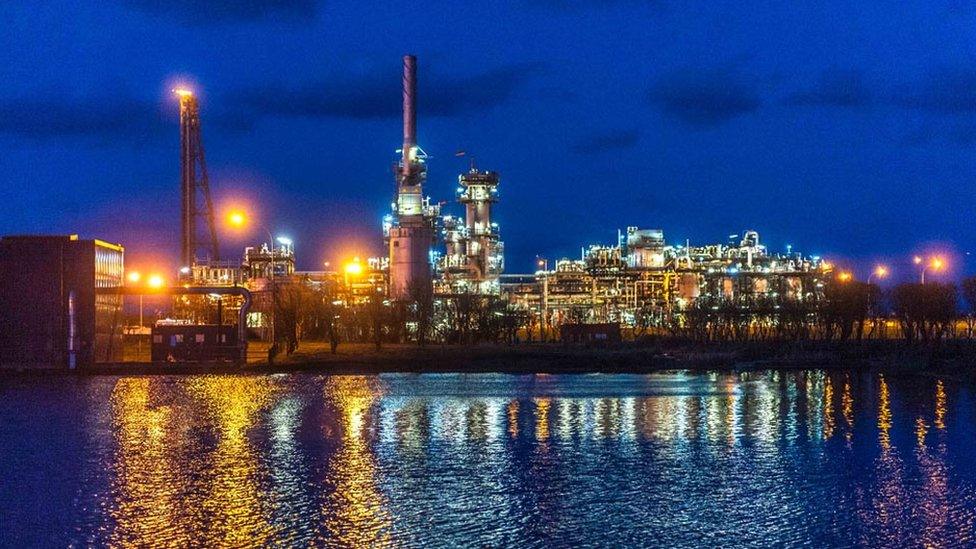
The UK government did not back the Acorn Project plans to build a carbon capture and storage facility at the St Fergus Gas Terminal in Aberdeenshire
She also got a much warmer reception than he did from the party members who turned out to hear them in Perth.
Among her backers was the former Scottish secretary David Mundell, who is tipped to make a return to government, possibly in an international role.
Senior Conservatives expect Alister Jack - who was publicly neutral - to continue as secretary of state, with speculation that a Scottish MP could be brought in as his deputy.
If a Sunak supporter was chosen, it would be seen as an effort to reunite the party after a divisive contest.
In addition to resisting independence, Scottish Conservatives want to see Ms Truss make the case for continued union by delivering more for Scotland.
Their wish list includes greater priority being given to the Acorn carbon capture and storage project, which is central to Scotland delivering its climate targets.
Some would also like to see the green freeport programme being extended in Scotland beyond the two successful bids that are expected to be announced in the coming weeks.
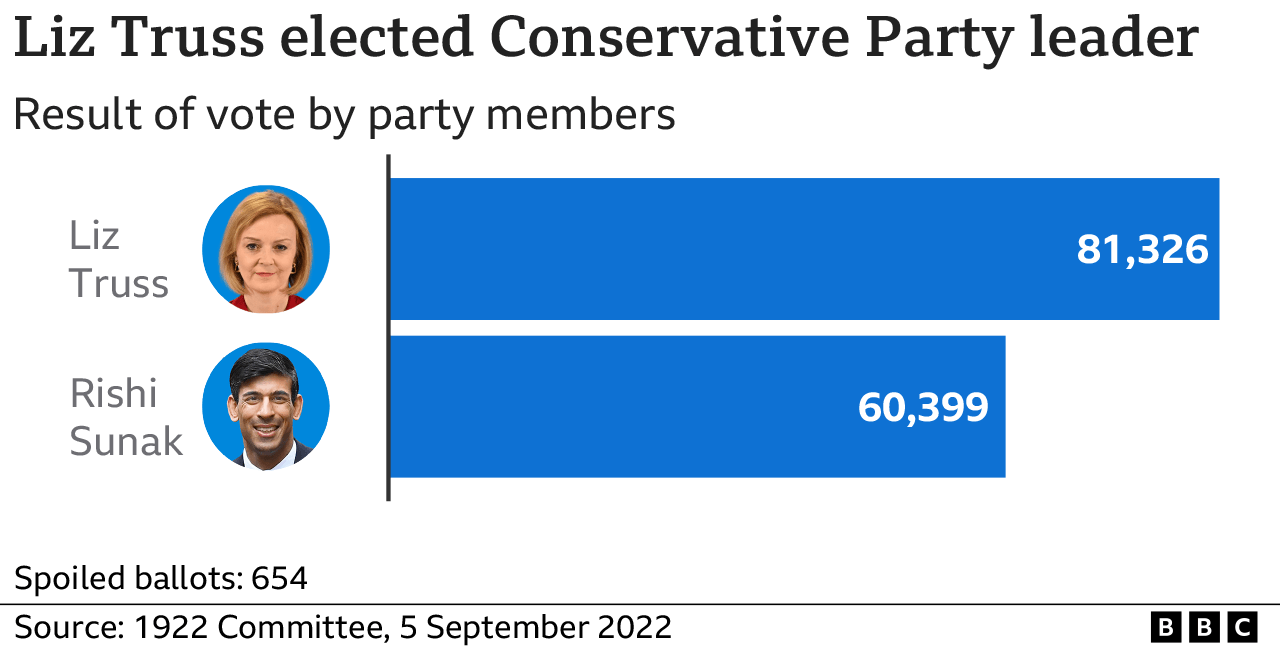
There is an expectation that the Truss administration will challenge the Scottish government to co-operate on more UK projects such as improving cross-border transport, developing small scale nuclear reactors and the Project Adder drugs programme.
Expect Scottish ministers to consider these approaches on a case-by-case basis and vigorously defend devolved decision making in areas where they disagree with the UK, such as nuclear.
Where the Scottish government, the Scottish Conservatives and other opposition parties broadly agree is that they want more radical action than has so far been promised on cost of living help for households and businesses.
Ms Truss has said there will be an announcement on an immediate package of support within a week.
It is the first major test the new prime minister faces and potentially a defining moment for her with voters, not just in Scotland but throughout the UK.